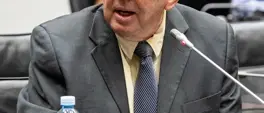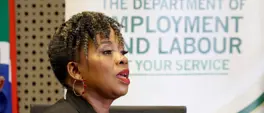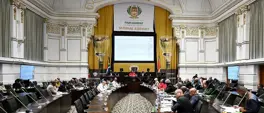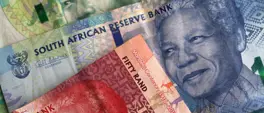SARB's Kganyago says global debt crisis had shifted into a new paradigm
Nokukhanya Mntambo
17 July 2025 | 15:39Escalating global debt has again raised sharp concerns at a meeting of G20 Finance Ministers and Central Bank Governors, breaching pre-COVID levels.
- G20 Summit
- South African Reserve Bank (SARB)
- South African Reserve Bank Governor Lesetja Kganyago
- Debt Crisis
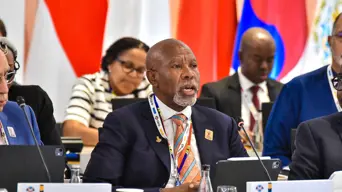
South African Reserve Bank Governor Lesetja Kganyago at G20 Finance Ministers and Central Bank Governors Meeting in Zimbali, KwaZulu-Natal on 17 July 2025. Picture: @SAReserveBank/X
JOHANNESBURG - Escalating global debt has again raised sharp concerns at a meeting of G20 Finance Ministers and Central Bank Governors, breaching pre-COVID levels.
The already high and expensive borrowing costs, compounded with slow economic growth and rising geopolitical risks, were on the agenda at the third finance track talks underway in KwaZulu-Natal.
READ: Concerns about global uncertainty weigh heavy on minds of fiscal, monetary policy leader
This is the final finance track meeting in the country before the leaders' summit in November.
According to the Organisation for Economic Co-operation and Development, emerging markets and developing economies’ borrowing from debt markets has grown significantly, from around 1 trillion dollars in 2007 to over 3 trillion dollars in 2024.
Reserve Bank Governor Lesetja Kganyago said the global debt crisis had shifted into a new paradigm.
"At the same time, the Bank for International Settlements shows credit growth is now driven more by lending to government than to the private sector, reflecting persistently high deficits and fiscal pressures."
With fiscal space constrained and growth weak, Kganyago said that fiscal authorities were likely to face challenges in rebuilding fiscal buffers in many countries.
"Fiscal risks continue to drive up long-term yields and debt service costs."
Central to talks during a series of G20 meetings will focus on preserving macroeconomic stability while supporting inclusive and sustainable growth.
Get the whole picture 💡
Take a look at the topic timeline for all related articles.




